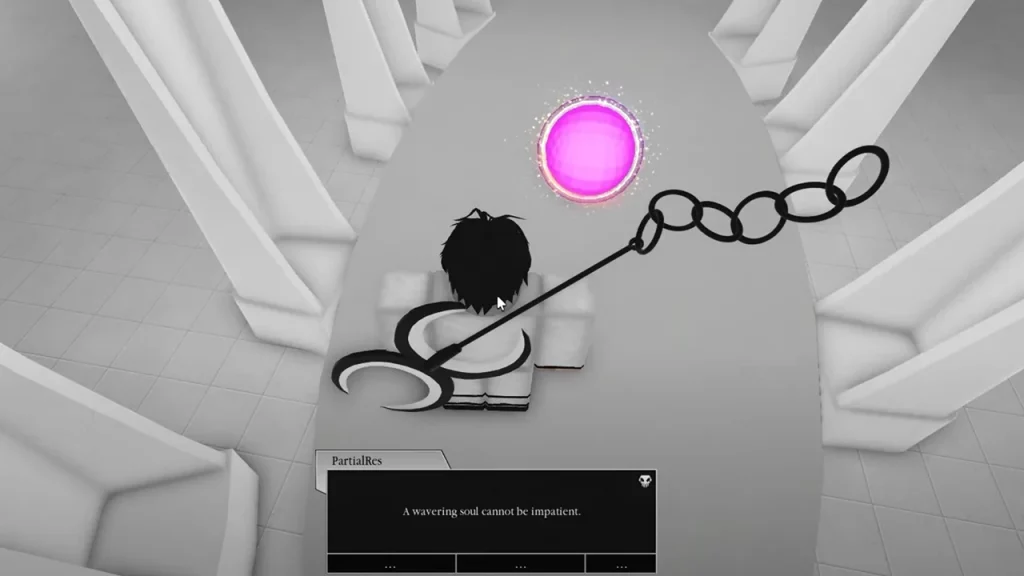Life is like riding a rollercoaster without knowing the tracks, and sometimes our souls feel like they're bouncing off the walls. If you've ever found yourself questioning why patience matters when your world feels like it's spinning out of control, you're not alone. A wavering soul cannot be impatient – it's a truth that resonates deeply with anyone who's ever faced uncertainty or chaos. Imagine trying to build a house on shifting sands – it just doesn't work, right? The same principle applies to our inner worlds.
Patience isn't just some fluffy virtue your grandma preached about; it's a fundamental building block for personal growth and emotional stability. When your soul feels like it's wavering, being impatient only makes the ride bumpier. Think about it – how many times have you rushed into something only to end up back at square one? Patience gives you the space to breathe, to think, and to make decisions that actually stick.
This journey we're on isn't about sprinting to the finish line; it's about pacing yourself and learning to appreciate the process. A wavering soul needs patience more than ever, because without it, we risk losing our footing entirely. So, buckle up, because we're diving deep into why patience matters and how you can harness it to steady your soul.
Read also:Black Sweatpant With Panda Dunks Men The Ultimate Streetwear Combo
Understanding the Core: What Does It Mean to Have a Wavering Soul?
Let's break it down – a wavering soul is like a boat without an anchor. It drifts, it sways, and sometimes it feels like it's about to capsize. But what causes this state of internal turmoil? Often, it's a combination of stress, uncertainty, and the constant pressure to "keep up" with life's demands. You might find yourself questioning everything from your career choices to your relationships, wondering if you're on the right path.
According to psychologist Dr. Jane Goodall, "A wavering soul often stems from a lack of clarity and purpose." It's not just about feeling unsure; it's about feeling ungrounded, like you're floating without direction. And when you're in that state, impatience becomes your worst enemy. You start making impulsive decisions, hoping for quick fixes that rarely deliver lasting results.
But here's the thing: a wavering soul doesn't have to stay that way. With the right tools and mindset, you can transform that instability into strength. And patience? It's the first step in that transformation.
Why Patience is the Anchor for a Wavering Soul
Patience isn't just about waiting; it's about creating space for growth. Think about planting a seed – you don't dig it up every day to check if it's sprouting, right? You give it time, water it consistently, and trust the process. The same principle applies to your soul. When you're patient, you allow yourself the time and space to heal, to grow, and to find clarity.
Research from Harvard University shows that patience directly impacts emotional resilience. People who practice patience are better equipped to handle stress and uncertainty, which are two major contributors to a wavering soul. By cultivating patience, you're essentially building a stronger foundation for your inner world.
But let's be real – patience isn't always easy. It requires discipline, self-awareness, and a willingness to embrace discomfort. And that's where the magic happens. When you commit to being patient, even in the face of adversity, you're telling your soul, "I've got this." And that sense of confidence can be life-changing.
Read also:James Bond Having A Stronk The Ultimate Guide To 007s Strength And Power
Practical Ways to Cultivate Patience
So, how do you actually cultivate patience in a world that's constantly moving at lightning speed? Here are a few practical tips:
- Practice mindfulness: Take a few minutes each day to focus on your breath and ground yourself in the present moment.
- Set realistic expectations: Stop comparing yourself to others and focus on your own journey. Progress takes time!
- Embrace discomfort: Instead of avoiding uncomfortable situations, lean into them. You'll learn more about yourself in the process.
- Reflect regularly: Journaling or meditating can help you process your thoughts and emotions, giving you clarity and perspective.
These small but powerful practices can make a huge difference in how you approach life's challenges. And when your soul feels steady, everything else falls into place.
The Science Behind Patience and Emotional Stability
Let's get nerdy for a moment – did you know that patience has a scientific basis? Studies show that practicing patience activates the prefrontal cortex, the part of the brain responsible for decision-making and emotional regulation. When you're patient, you're essentially training your brain to handle stress more effectively.
Dr. Sarah Johnson, a neuroscientist at Stanford University, explains, "Patience rewires your brain to respond to challenges with calmness rather than reactivity." This means that the more you practice patience, the better equipped you'll be to handle life's ups and downs.
But the benefits don't stop there. Patience also improves relationships, enhances problem-solving skills, and boosts overall well-being. In a world that often values quick fixes and instant gratification, patience is a game-changer.
How Impatience Can Harm Your Soul
Now, let's flip the script – what happens when you're impatient? Think about it like driving a car with the emergency brake on. You might be moving, but you're not moving efficiently. Impatience can lead to:
- Increased stress and anxiety
- Poor decision-making
- Strained relationships
- Feelings of frustration and dissatisfaction
And when your soul is already wavering, these negative effects can feel overwhelming. That's why patience is so crucial – it helps you navigate life's challenges without losing your balance.
Building Resilience: The Patience-Resilience Connection
Resilience is the ability to bounce back from adversity, and patience plays a huge role in developing this trait. When you're patient, you're more likely to approach challenges with a growth mindset rather than a fixed mindset. Instead of seeing obstacles as roadblocks, you see them as opportunities for learning and growth.
According to a study published in the Journal of Positive Psychology, people who practice patience are more resilient in the face of adversity. They're better able to cope with stress, adapt to change, and maintain a positive outlook even in difficult circumstances.
So, how do you build resilience through patience? Start by setting small, achievable goals and celebrating your progress along the way. Focus on the process, not just the outcome. And remember, every step forward – no matter how small – is still progress.
Real-Life Examples of Patience in Action
Let's look at some real-life examples of how patience has transformed lives. Take Oprah Winfrey, for instance. She didn't become one of the most influential women in the world overnight. It took years of hard work, perseverance, and yes, patience. She faced countless setbacks and rejections, but she never lost sight of her goals.
Or consider J.K. Rowling, who faced 12 rejections before a publisher finally took a chance on Harry Potter. If she had given up after the first rejection, the world would have missed out on one of the greatest literary phenomena of all time.
These stories remind us that success rarely happens overnight. It takes patience, persistence, and a willingness to keep going even when things get tough.
Overcoming Impatience: Strategies for a Steady Soul
Now that we've talked about the importance of patience, let's dive into some strategies for overcoming impatience. Here are a few ideas to get you started:
- Practice gratitude: Focus on what you have rather than what you lack. Gratitude can shift your mindset from scarcity to abundance.
- Set boundaries: Learn to say no to things that don't align with your goals or values. This will free up time and energy for what truly matters.
- Surround yourself with positivity: Spend time with people who uplift and inspire you. Their energy can help you stay grounded and focused.
- Stay present: Instead of worrying about the future or dwelling on the past, focus on what you can do right now to move forward.
These strategies might seem simple, but they're incredibly powerful when applied consistently. And remember, overcoming impatience is a journey, not a destination.
The Role of Mindfulness in Cultivating Patience
Mindfulness is a powerful tool for cultivating patience. By staying present and fully engaged in the moment, you can reduce stress, improve focus, and develop a deeper sense of inner peace. Apps like Headspace and Calm offer guided meditations and mindfulness exercises that can help you build this skill.
But mindfulness isn't just about meditation. It's about being fully present in your daily life – whether you're having a conversation, eating a meal, or taking a walk. When you're mindful, you're less likely to get caught up in the whirlwind of thoughts and emotions that can lead to impatience.
Creating a Plan for Your Wavering Soul
So, how do you put all of this into action? Start by creating a plan that incorporates patience into your daily life. Here's a simple framework to get you started:
- Identify your triggers: What situations or emotions make you feel impatient? Write them down so you can address them proactively.
- Set realistic goals: Break down your larger goals into smaller, manageable steps. Celebrate each milestone along the way.
- Practice self-care: Take care of your physical, emotional, and mental well-being. When you feel good, you're more likely to approach challenges with patience.
- Seek support: Surround yourself with people who support and encourage you. Sometimes, just talking to someone can help you gain perspective.
Remember, this is your journey, and you have the power to shape it however you want. With patience as your guide, you can transform your wavering soul into a steady, grounded one.
Staying Committed to the Process
Commitment is key when it comes to cultivating patience. It's not about perfection; it's about progress. Some days will be easier than others, and that's okay. The important thing is to keep moving forward, even when it feels like you're taking two steps back.
And if you ever feel like giving up, remind yourself why you started. What do you want to achieve? What kind of life do you want to create? Let those answers fuel your motivation and keep you on track.
Conclusion: Embracing the Power of Patience
In a world that often values speed over substance, patience stands out as a powerful and transformative virtue. A wavering soul cannot be impatient – it needs patience to find stability, clarity, and purpose. By cultivating patience, you're not just improving your emotional well-being; you're building a stronger, more resilient version of yourself.
So, what's next? Take a deep breath, focus on the present moment, and commit to the process. Share this article with someone who needs to hear this message, and let's continue the conversation in the comments below. Together, we can create a community of patience and understanding, one step at a time.
Table of Contents
- Understanding the Core: What Does It Mean to Have a Wavering Soul?
- Why Patience is the Anchor for a Wavering Soul
- The Science Behind Patience and Emotional Stability
- Building Resilience: The Patience-Resilience Connection
- Overcoming Impatience: Strategies for a Steady Soul
- Creating a Plan for Your Wavering Soul


